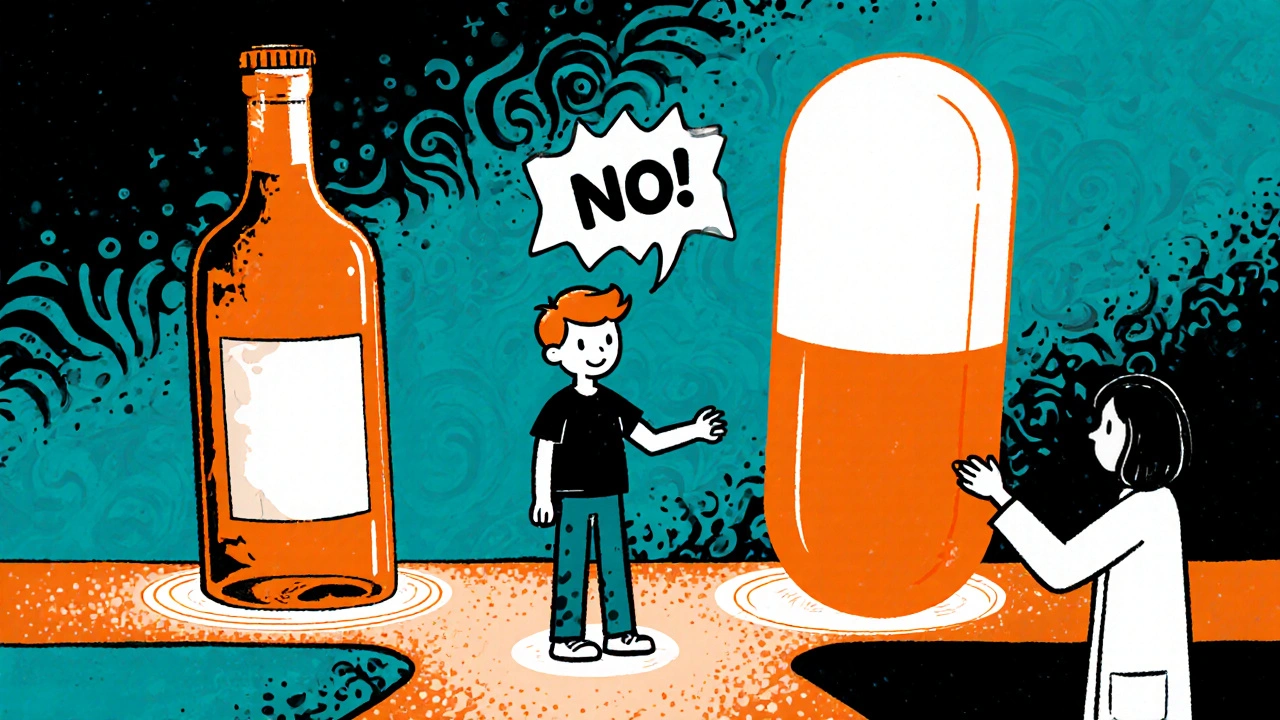Disulfiram: How It Works, What to Expect, and Safe Use
When dealing with Disulfiram, a prescription medication that creates an aversive reaction when alcohol is consumed. Also known as Antabuse, it helps people with alcohol use disorder stay abstinent. This drug belongs to the class of aldehyde dehydrogenase inhibitors, which block the enzyme that normally breaks down acetaldehyde. The result is a buildup of acetaldehyde whenever alcohol is taken, causing flushing, nausea, and rapid heartbeat – a reaction most users want to avoid.
Understanding alcohol dependence, a chronic condition marked by uncontrolled drinking and cravings is key to seeing why disulfiram fits into a broader treatment plan. The medication is not a cure; it’s an aversive therapy that works best when paired with counseling, support groups, and a solid relapse‑prevention strategy. Patients who stay consistent with dosing and avoid even trace amounts of alcohol tend to see the biggest drop in cravings.
Important Safety and Monitoring Tips
Because disulfiram interferes with liver enzymes, regular liver function tests are a must. Elevated ALT or AST levels can signal liver stress, and the drug should be stopped if serious abnormalities appear. Additionally, the medication can interact with several common drugs – most notably certain antibiotics, anti‑seizure meds, and over‑the‑counter cough syrups that contain alcohol. Always tell your doctor about every medication you’re taking, even herbal supplements.
Adherence is a practical challenge. Some people forget doses or skip them hoping to drink without side effects. To combat this, many clinicians recommend a weekly pill box, smartphone reminders, or involving a trusted family member in the routine. Consistent use reinforces the aversive link and helps break the habit loop that fuels dependence.
Nutrition also plays a role. Disulfiram can cause a metallic taste and reduce appetite, so a balanced diet with plenty of fluids helps mitigate gastrointestinal discomfort. If nausea persists, talk to your provider about dose adjustments or an alternative aversive agent.
Beyond the medical side, lifestyle changes boost success. Regular exercise, structured daily activities, and avoiding social settings where alcohol is central reduce triggers. Many users report that once the initial uncomfortable reactions pass, the mental barrier against drinking becomes stronger than any physical effect.
Below you’ll find a curated collection of articles that dive deeper into these topics – from comparing disulfiram with other alcohol‑use treatments to managing liver health while on the drug, and practical guides on buying affordable prescriptions online. Explore them to build a complete picture of how disulfiram can fit into your health journey.
Explore how disulfiram works, its evidence for teen alcohol addiction, safety steps, and integration with counseling in a practical guide.

